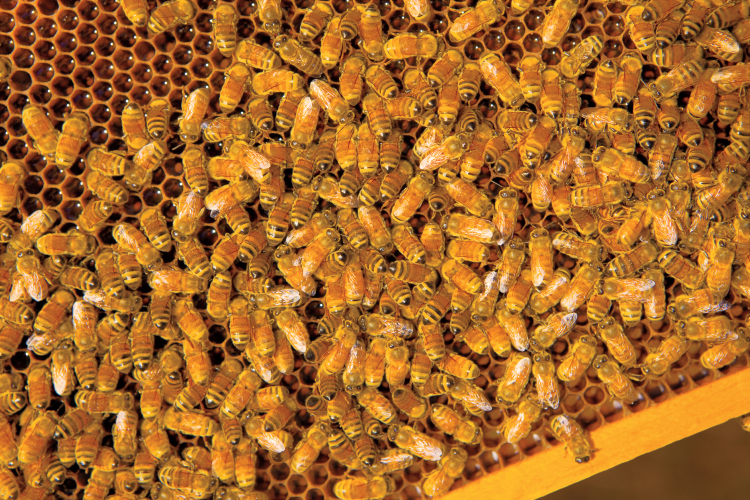Home > Georgia > Georgia Crops & Livestock > Georgia’s Honeybees Bring Sweet Success
Georgia’s Honeybees Bring Sweet Success
When talking about the importance of honeybees, Reg Wilbanks cites a favorite fact: “One out of every three bites of food people eat is thanks to honeybees.”
And Wilbanks certainly knows bees. Back in the 1800s, his great-grandfather gave his grandfather four colonies of bees as a wedding present. Today, Wilbanks Apiaries operates approximately 6,000 colonies primarily for the production of package bees, which results in 15,000 to 20,000 packages per year. Package bees are adult bees, with or without a queen, contained in a screened shipping cage and sold. As for the queen-rearing side of the operation, Wilbanks runs close to 15,000 mating nuclei that produce more than 60,000 queens annually for sale and shipping worldwide.
“Everybody should look at the bee and not think of it as something that can sting and produce honey,” he says. “A Cornell University study estimates that bees contribute more than $15 billion worth of crops every year through pollination. That contribution is vital to the agriculture industry and to our food supply.”
More than 100 agricultural crops in the U. S. are pollinated by bees, including important Georgia crops such as watermelons, cantaloupe, peaches and muscadines.
Georgia has an estimated 75,000 bee colonies and 2,000 hobby and commercial beekeepers. The industry generates $70 million each year in the state through sales of honey, beeswax, queen bees and package bees.
The University of Georgia Extension Service says Georgia ranks second in production of queen bees and packaged bees, which are shipped to beekeepers around the world for starting colonies and for crop pollination. Wilbanks Apiaries, a third-generation beekeeping enterprise, is a leader in the industry.
Wilbanks says he is concerned about the decline in the bee population across the nation.
“I don’t think researchers have been able to pinpoint the cause, but information on how to protect the bee population is improving,” he says. The industry has learned more about how to fight disease, how to reduce the stress on bees as they are moved around the country for pollination purposes and bee nutrition.
The addition of 40,000 bees at the governor’s mansion by Gov. Nathan Deal raises awareness of the importance of honeybees to agriculture. On a national level, the White House Garden has also added beehives.
“People are becoming more aware of the importance of bees and the threat to the bee population,” Wilbanks says. “Because of that, people want to do their part in keeping the population healthy, and that’s important to the future.”
The honeybee was designated the state insect of Georgia in 1975, acknowledging its contribution to the state’s economy.




